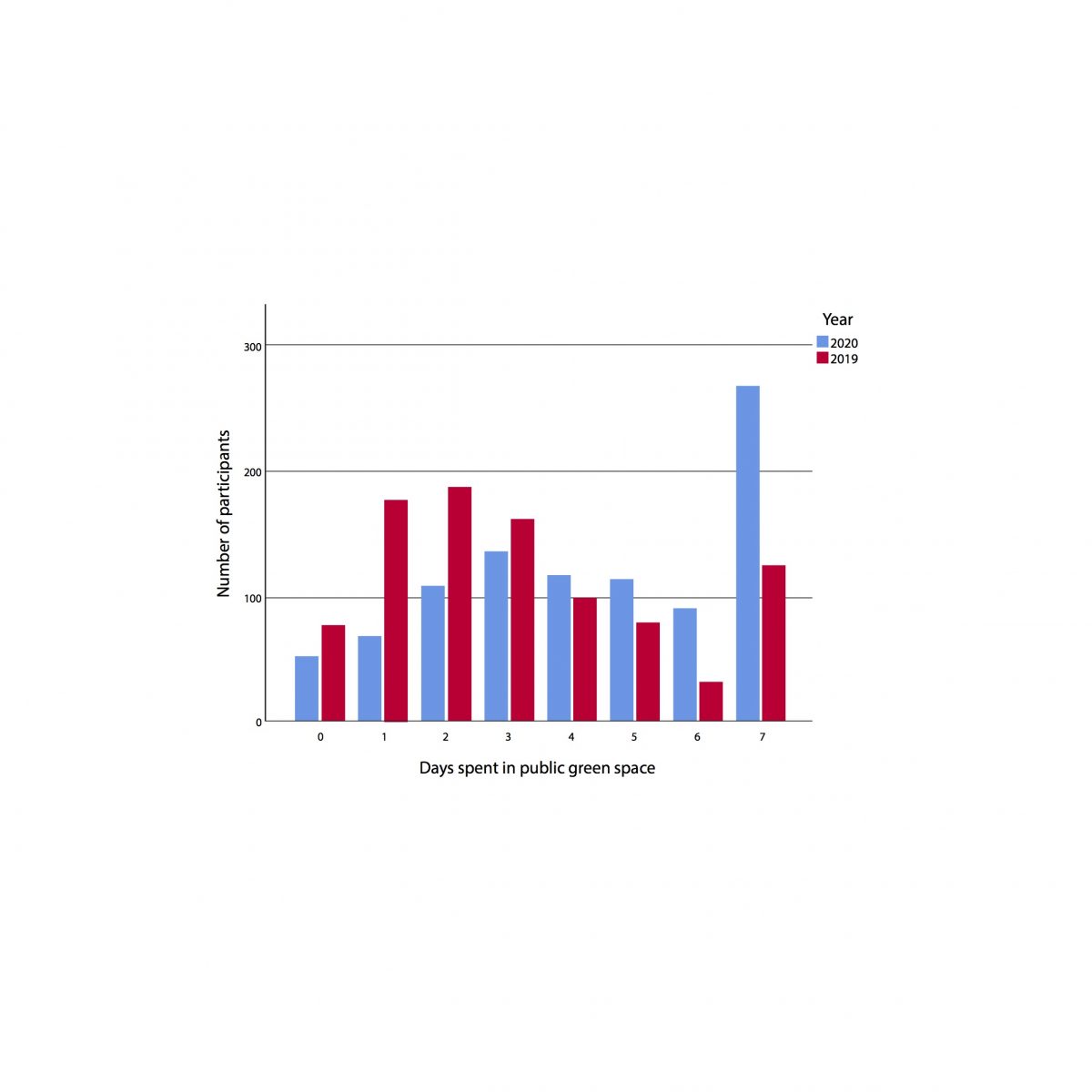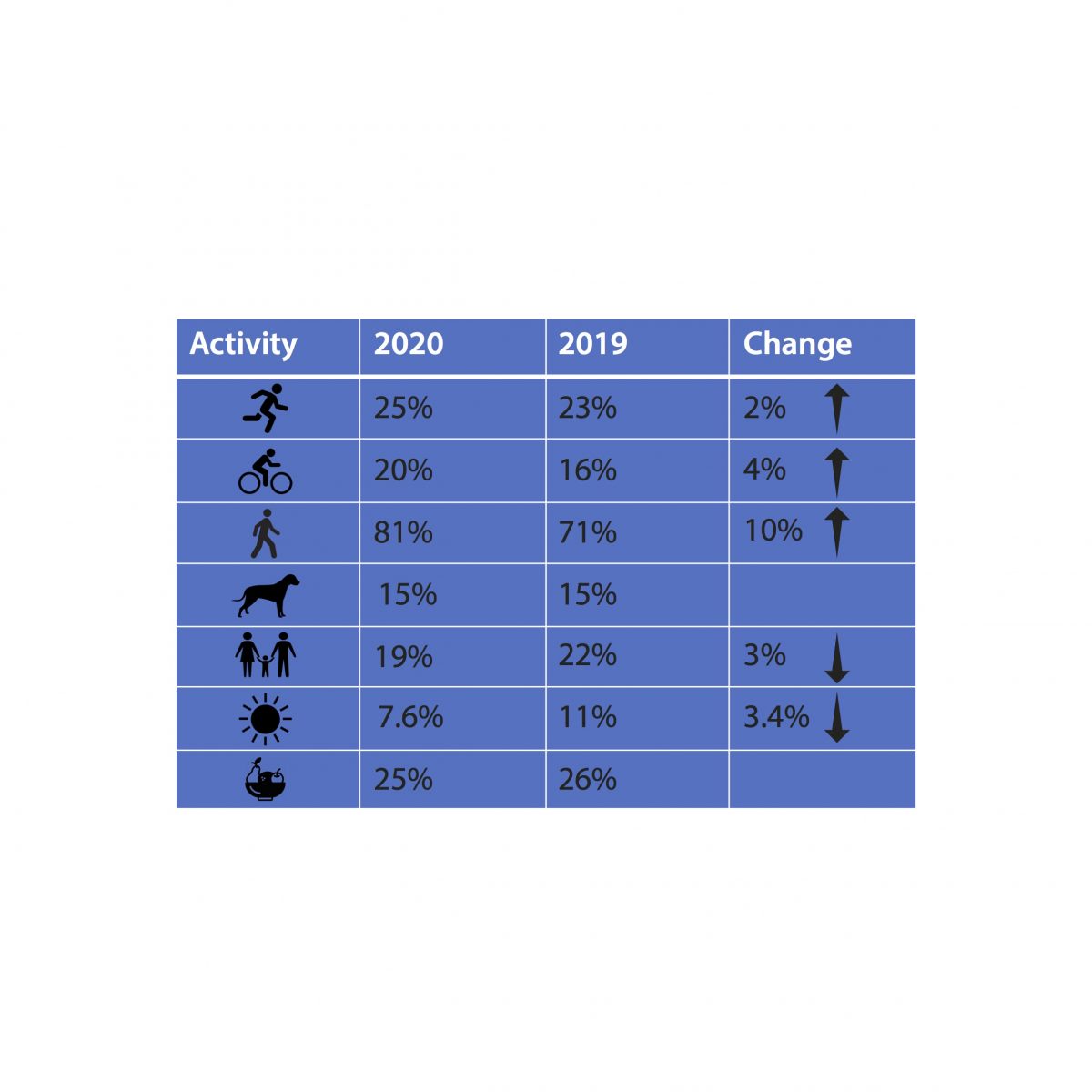Krystallia Kamvasinou, Rachel Aldred, Nina Smyth (Psychology, School of Social Sciences)
During the COVID-19 pandemic, we surveyed people’s experiences in public green spaces in London as well as changing travel and exercise habits, and their impact on wellbeing. Our online questionnaire survey, which run from early June to end of July 2020, was completed by around 1000 Londoners across many Boroughs.
The findings support the value of green space under COVID-19 and point to the need to address issues of perceived risk, physical distancing and capacity. While overall levels of physical activity were similar pre- and during COVID-19, there was substantial churn among our sample – some increased and some decreased their physical activity. This is important if policy can encourage both groups to sustain or resume healthy habits, for example through safer spaces and better space management.
Further research in 2021 (using focus groups and a follow- up online survey) explored the impact of temporary park and street adaptations during the pandemic. While parks’ capacity was stretched to accommodate increased movement and activities often incompatible with each other and with environmental protection, certain streets became slower and greener, and the locus of socialisation outdoors, with cyclists replacing cars and parklets replacing parking spaces. Such changes can have long- term implications for climate, health and wellbeing in post- pandemic cities.











